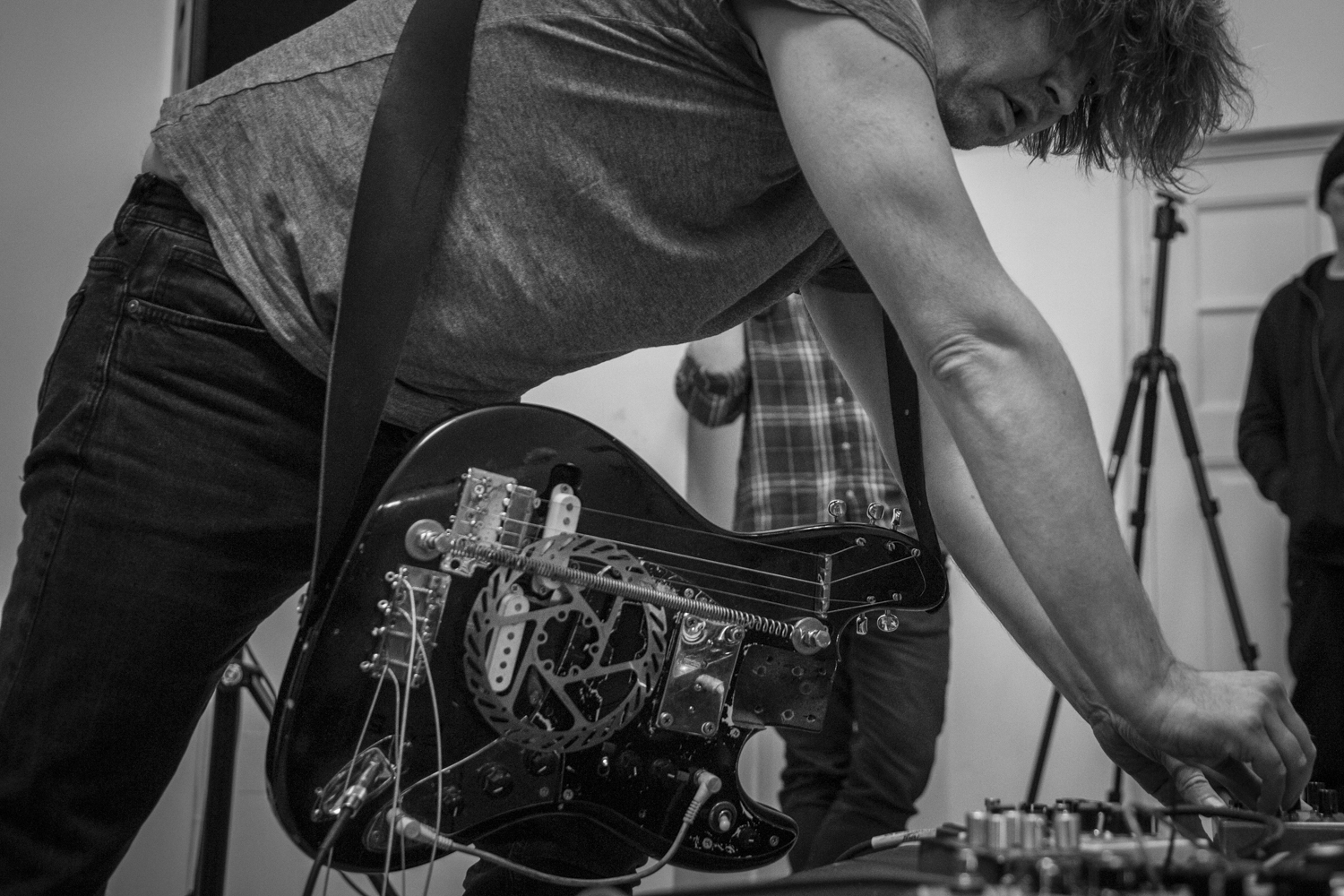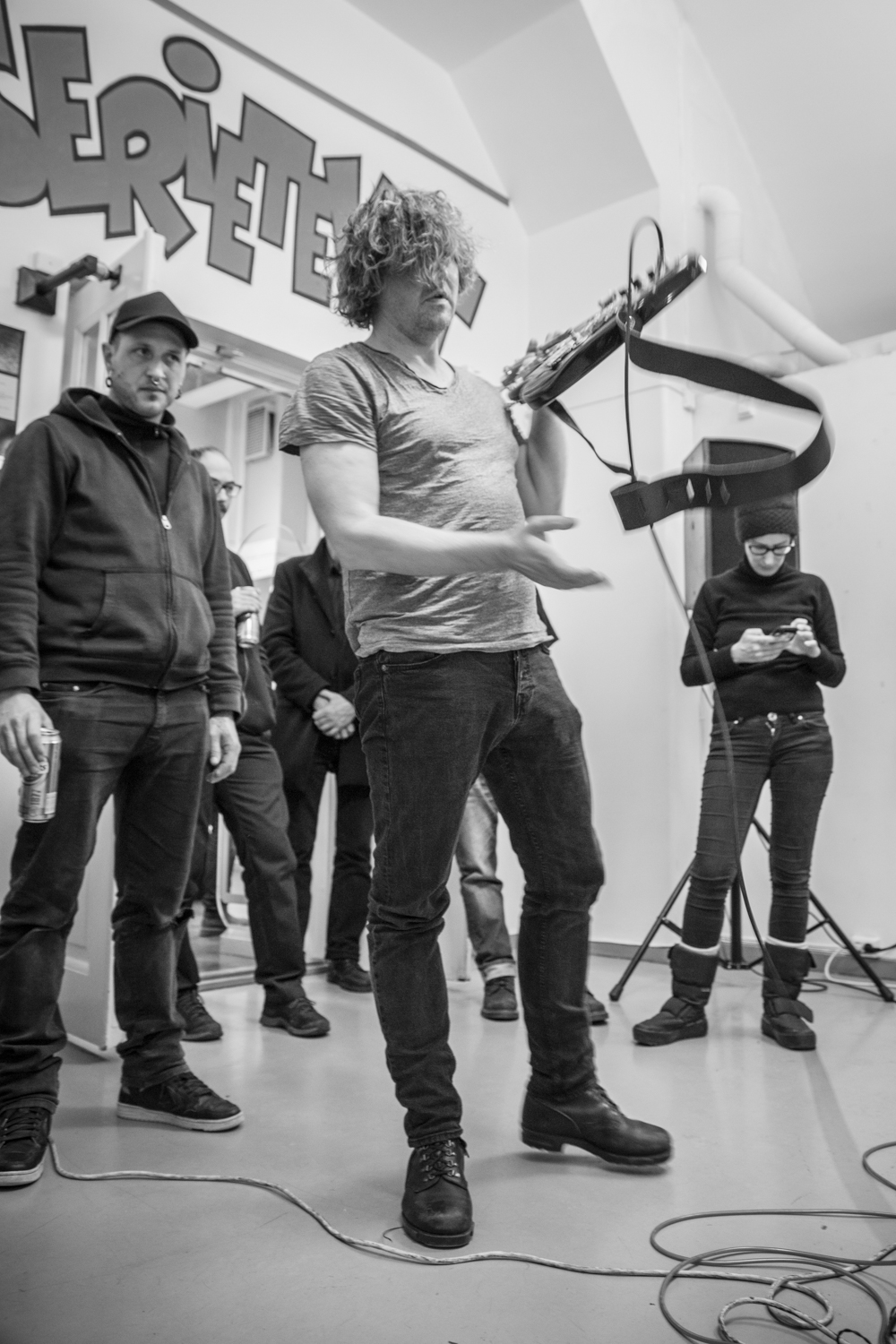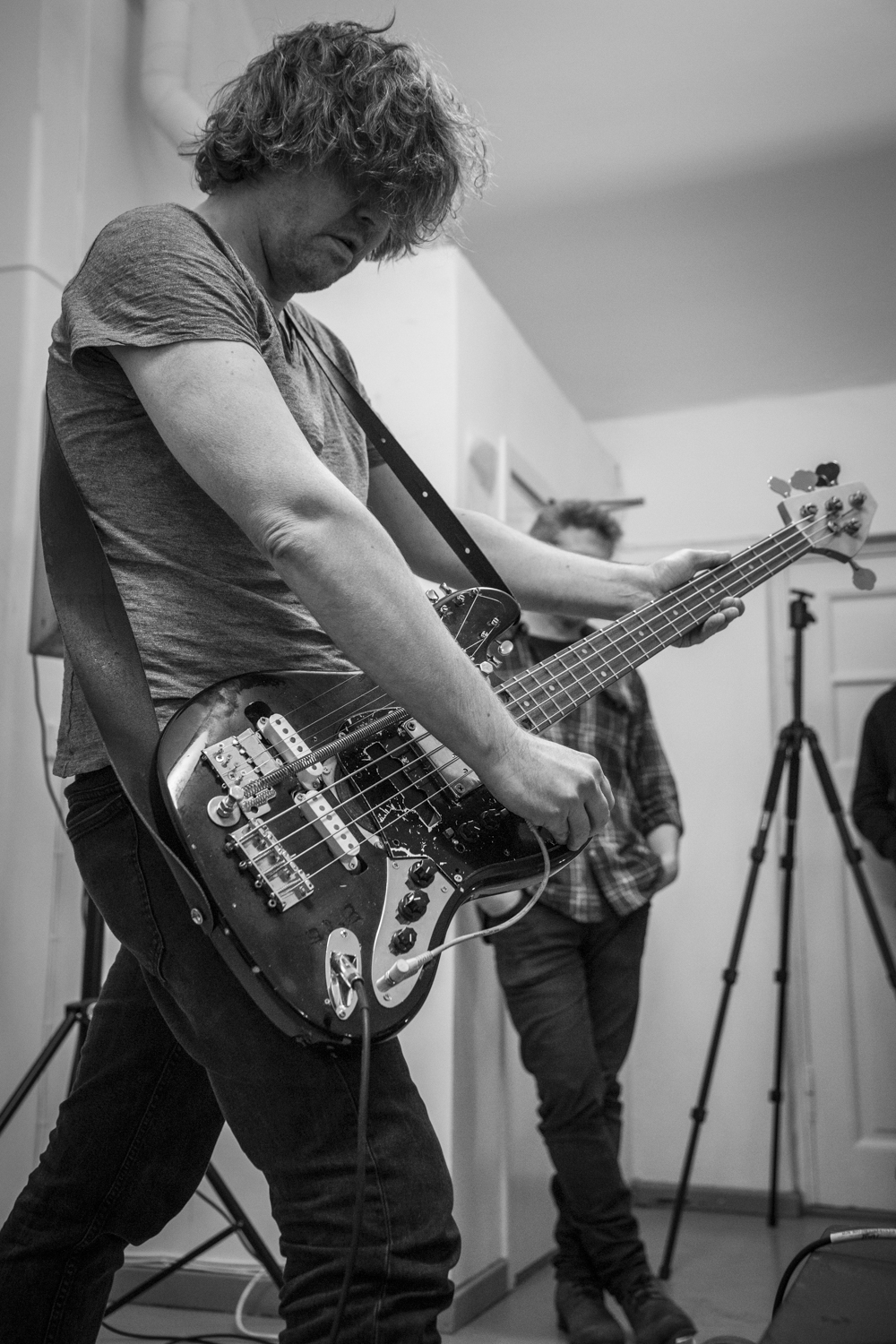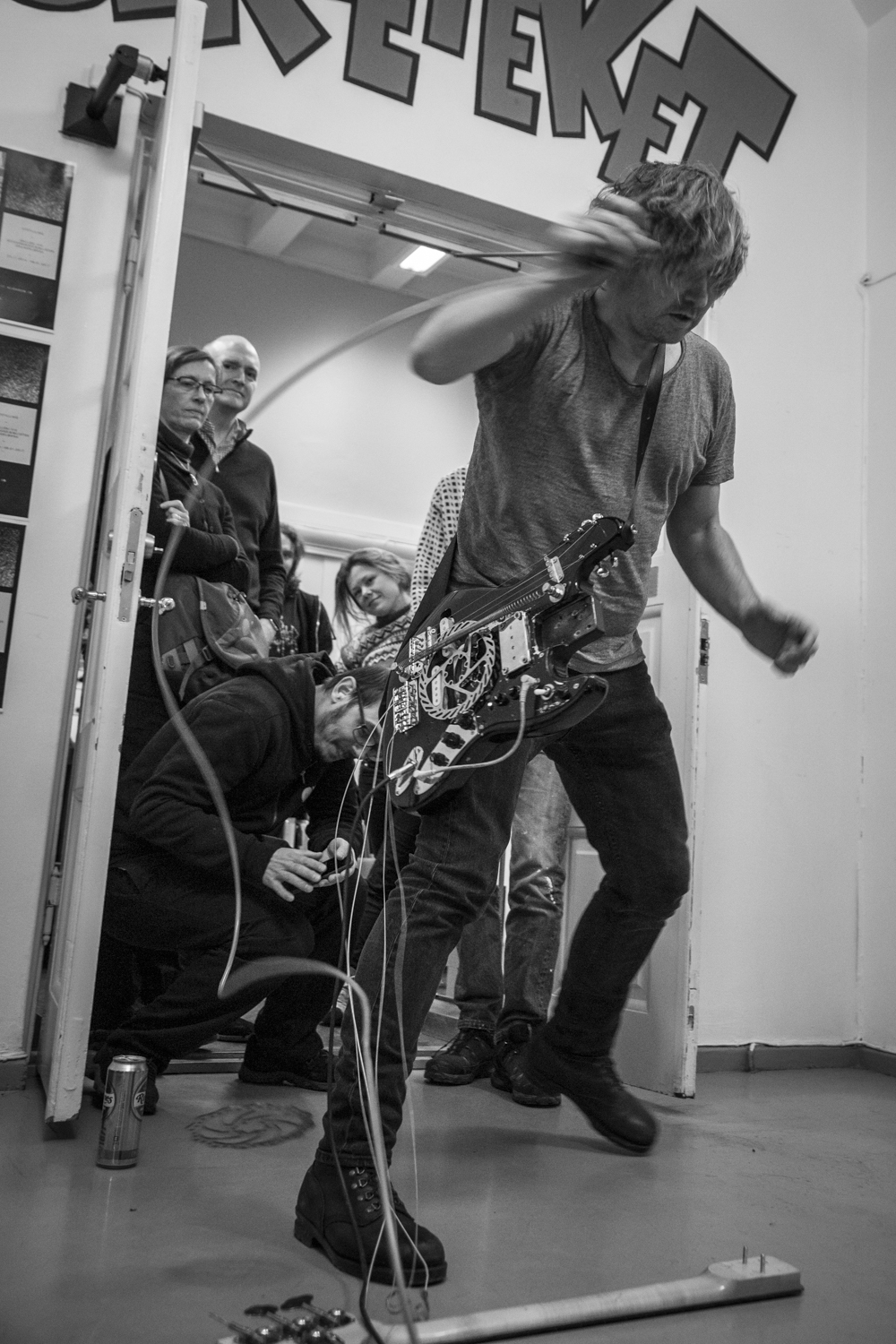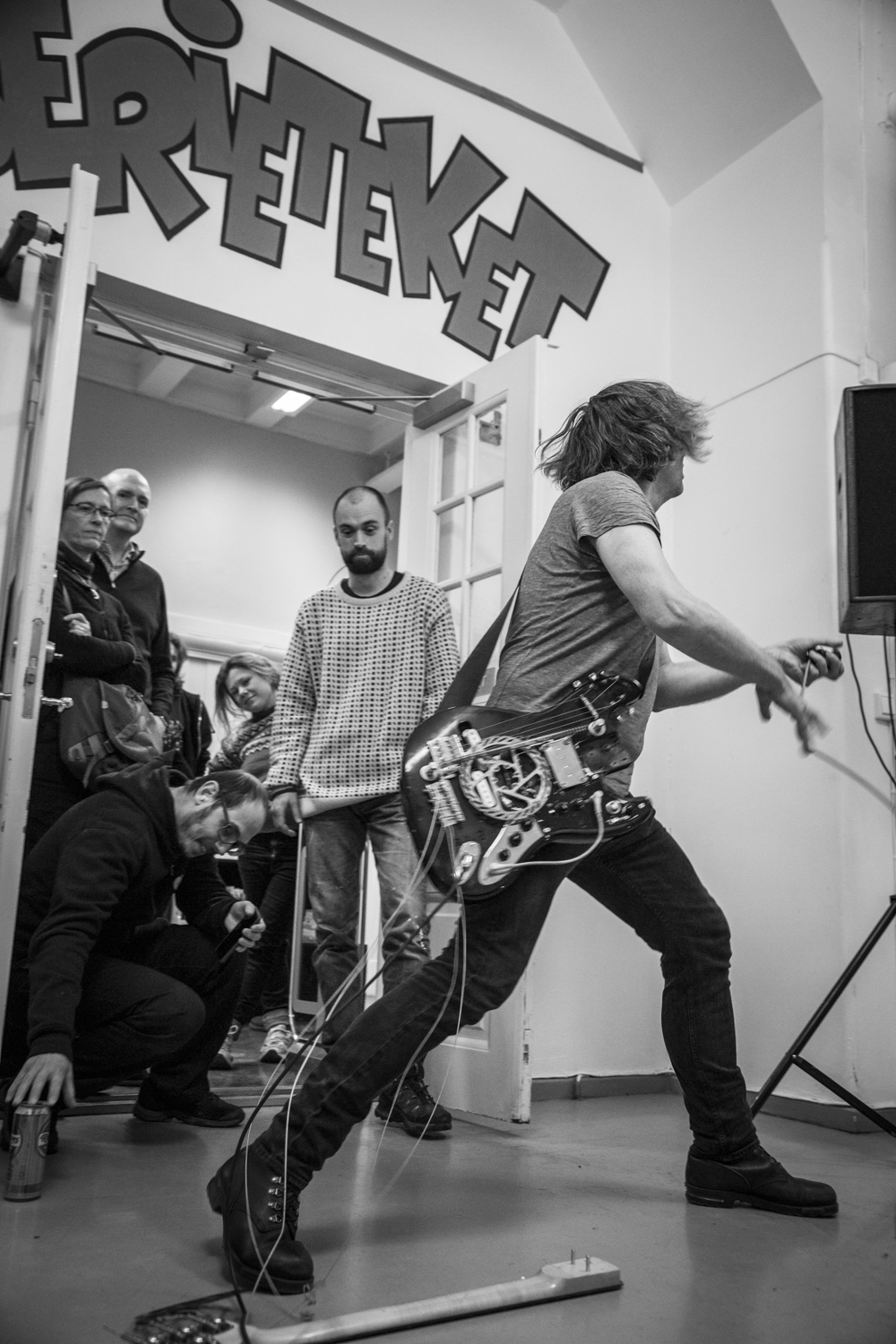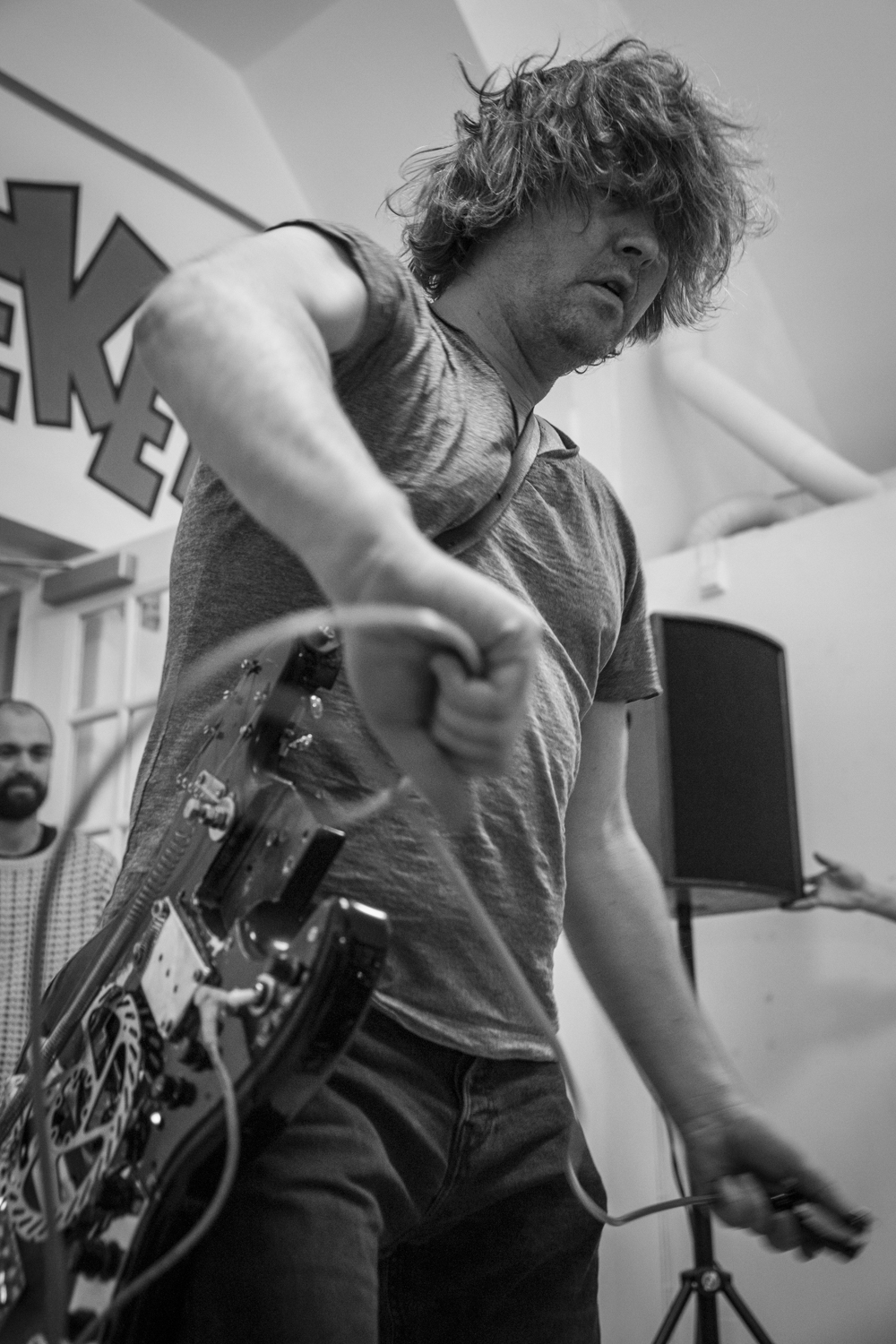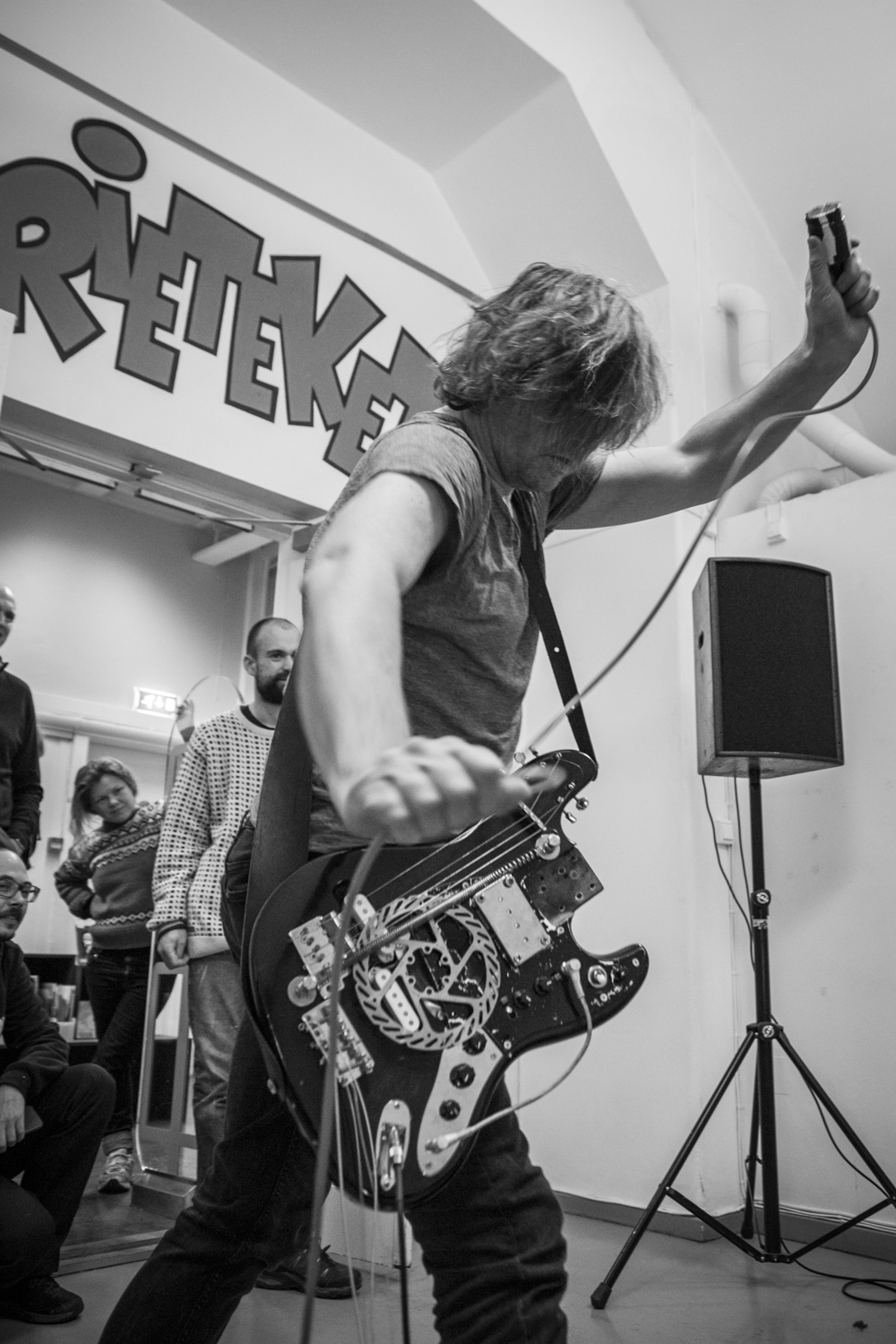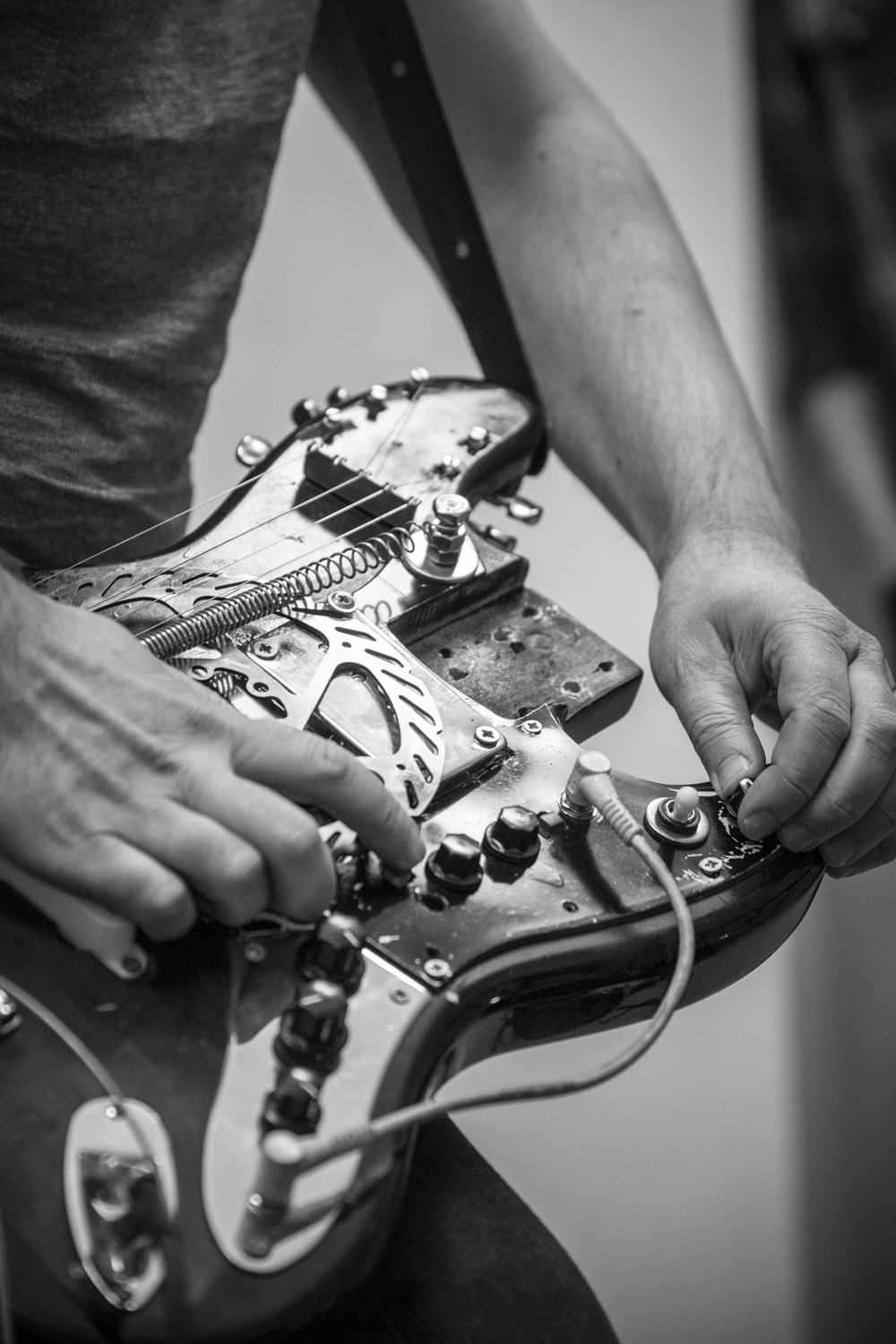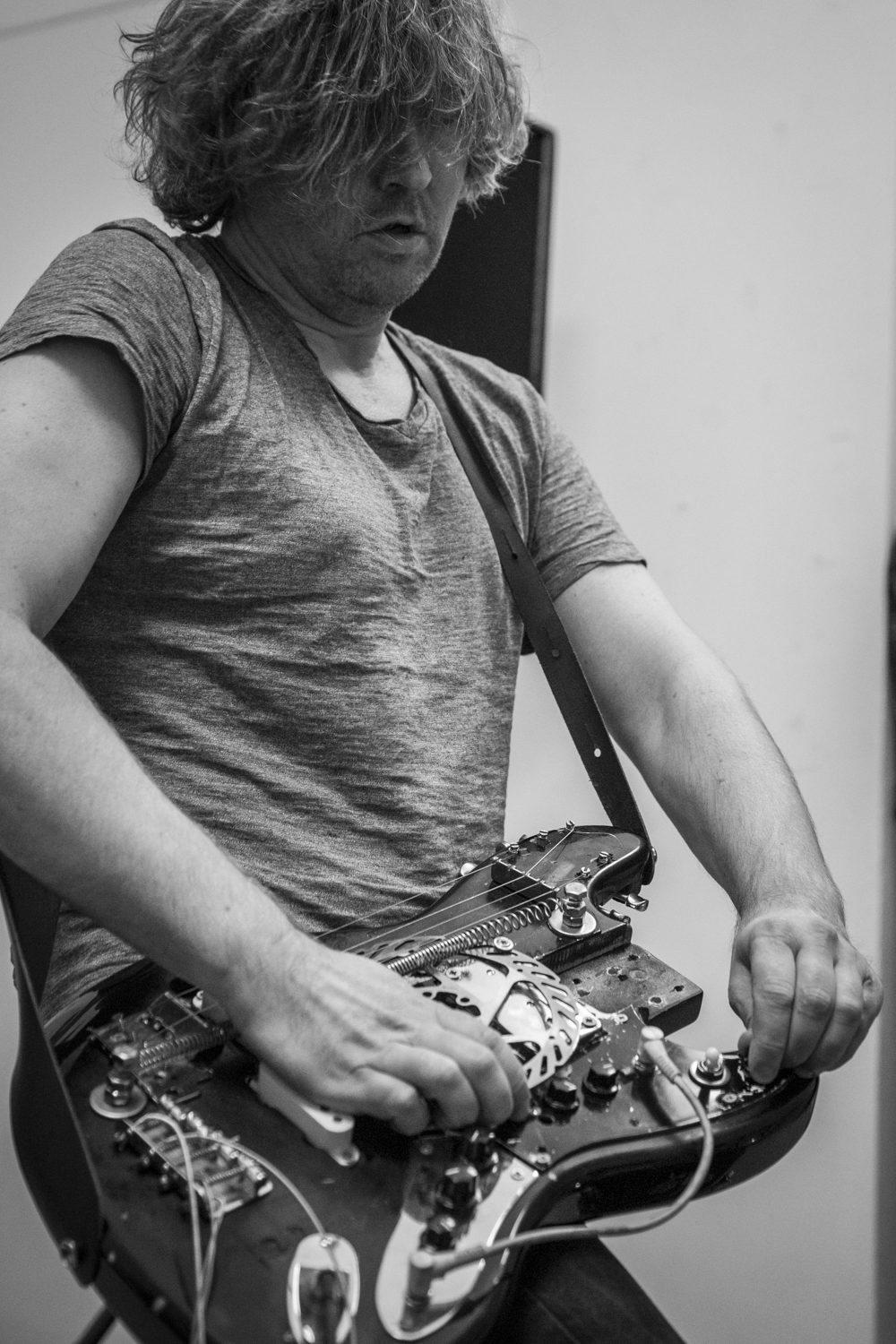Kenneth Korstad Langås "Library & Experimental Arts"
Kenneth Korstad Langås is heading Deichmanske Library Grünerløkka - which is a public library in Oslo. Continuing on the theme of alternative ways of creating a library, EE talked to Kenneth about his approach to merge the traditional concept of a library with experimental art practices.
The following is a transcript from the conversation between Kenneth Korstad Langås and Zane Cerpina on March 23rd, 2017.
Zane Cerpina (EE): Deichmanske Library in Grünerløkka can seem like a typical public library, but here you can often experience artistic workshops, performances and even international noise festivals. Why?
Kenneth Korstad Langås (KKL): I believe the library is the last democratic space in the society. It has to be open for absolutely everyone. It is interesting that on the one hand we have a good classical collection here, but on the other hand my goal has been to explore the public space in a more radical way. I am trying to open it up for people who are really engaged in what they do, such as exploring the arts - from music, film and theatre to fine arts and the experimental art scene. How can we use art practice as a different way to meet the audience? It is important to give the space to narrow fields, such as experimental music. Even if you show something very abstract, you shouldn’t be afraid to give people something they don’t understand. During the SØRFORKOMFORT festival that we organized in collaboration with Folkebiblioteket, Dans for Voksne and Edge of Wrong, we had a musician exploring music created from the Ebola virus, step dancers, noise musicians, and a theatre play on the same night. A lot of festivals are doing this now. Many people who come here, they say that these specific scenes tend to be quite narrow. They want to explore how to make a broader platform for practices and have new audiences.
“The library is the last democratic space in the society”
EE: Returning to the topic of the public library, what is its role in times of post-truth and fake news?
KKL: I think that the library will become more and more important in the years to come. Propaganda has been around for a very long time. And librarians are good at finding sources and promoting critical thinking. It will be more and more important as one of the key actors regardless of online information.
“My goal has been to explore the public space in a more radical way”
EE: From the events I have experienced here, it seems that you manage quite well to gather a good number of visitors. What is your approach to the local audiences?
KKL: It is always a challenge, especially for smaller events. When you bring in very interesting artists that have never been to Norway, it is extremely hard to get the audience. It is also a question of how to reach people without using Facebook. It is a challenging situation when one actor controls the whole public space. It is damaging both the audience and institutions, as it becomes this big wave of information that the public is receiving. On the dangerous side this is used to manipulate polls, but my question is if there is a way to turn this upside down? Can we exploit the same data to pinpoint cultural activities? Of course this is a problematic question.
EE: Can you tell me about your involvement in the MultiNO Festival, that took place at the library in January 2017?
KKL: I have been involved in the festival for the third year. MutiNO offers quite extreme experiences. Both in a sense of being very abstract, but also extreme as reaching a physical notion of music. I had an interesting experience in Valencia, Spain, where the concert took place in a second hand store. There was a PHD student who have never experienced this before. She said it was extremely interesting, but she couldn’t take it anymore, it was too much. It is nothing radical in terms of trying to make something brand new, but it is offering the audience new experiences. And in terms of organizing it, there is some funding, very little, so everything is based on volunteers, and finding institutions to help. It is an extremely generous platform. I’ve also toured around Europe and performed in seven places, and it is interesting to compare both approaches to expressions and also different audiences.
EE: Being part of this touring experimental venue, how do you find the audiences differ in each country?
KKL: In southern Europe it was packed, 200 people came to this concert, in London only 40. There is a big movement in Naples, in Italy, for example. The cultural scene is really evolving there, you see people in age range from 18 - 70. I need to do more research on how this is possible.
EE: At MultiNO it was the first time I saw you perform as an artist. What is your artistic background?
KKL: I’ve been working as a fine art artist since the 90s, exploring media art, installation work, and I also worked in Verdensteatret. But coming back to it now 10 years later, and shifting my focus to experimental music scene, I think it’s really interesting. I am just continuing my artistic practice through a different expression. It also can be seen as a reaction to our times. It is also my abstract way of dealing with the frustration of what is happening in politics - from migration to poverty and debt. It is an expression that is extreme, but I also work with low key sound projects.
“Developing the library is one of the most creative things I have ever done”
I actually think that developing the library is one of the most creative things I have ever done. It is the most complex public space. By now I have worked on 500-600 events here. It is the same as working with art. You see what impact your actions can have on the audience.
www.deichman.no
